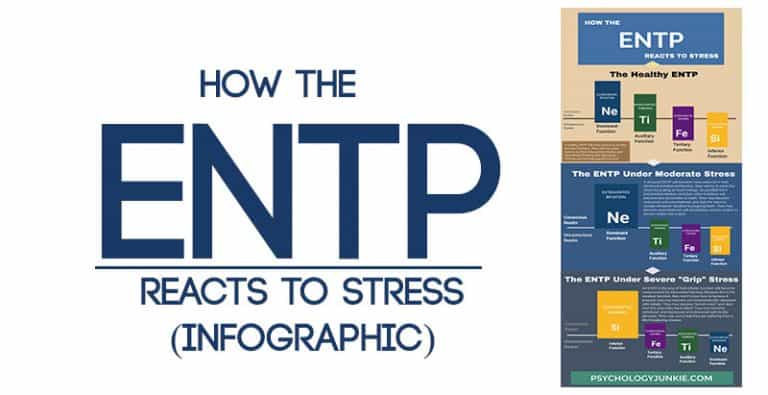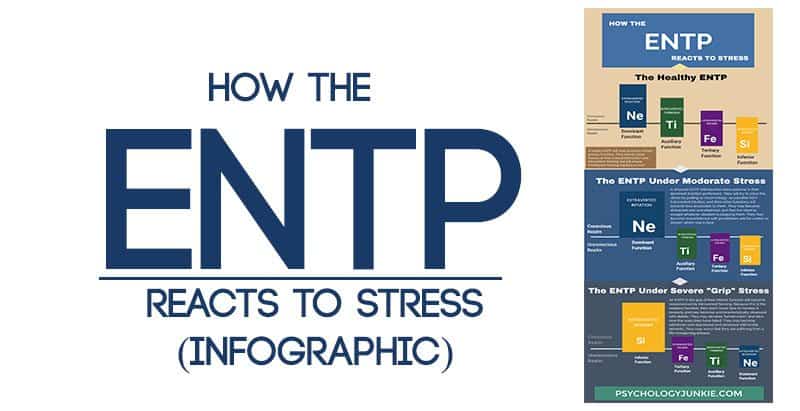Here’s Your Arguing Style, Based on Your Personality Type
Did you know that your personality type impacts how you argue? While each individual has unique traits that will show up in their debates, there are certain trends among types that come up again and again. Those trends and patterns are what we are going to be looking at today! Let’s get started!
Not sure what your personality type is? Take our new personality questionnaire!

Here’s Your Arguing Style, Based on Your Personality Type
ENFPs and ENTPs – Exploring Alternatives
These types are all about playing the devil’s advocate. You think you’re arguing with “facts”? Where did those facts come from? If you spin the fact a different way they might say something else entirely! As Extraverted Intuitives, ENPs are all about seeing alternatives, unusual angles, or random meanings. They can argue almost anything because they see so many sides to an issue. They will simultaneously open your mind and drain your willpower as they bring up points and counter-points to every argument you submit. Few things are black and white to these types because there are always more perspectives to consider. It isn’t always about winning the argument for these types, but exploring alternatives and playing with ideas.
ENTPs get very analytical in a dispute and can miss the emotional/value-laden side of the argument. They tend to be pedantic, skeptical, yet enthusiastic about arguing. A debate isn’t a sign of ill-will for these types, and they often use these opportunities to mentally exercise and entertain themselves.
ENFPs tend to personalize things more in an argument. They look at the values of everyone involved. How ethical is this decision/argument? How sincere are people being? What are the personal impacts and how will people be affected based on the outcome of the argument? As conscientious types, ENFPs are less likely to pursue arguing unless something very important to them is on the line.
Both ENFPs and ENTPs tend to enjoy a certain amount of “shock value” when arguing and may say things just to throw their opponent off-guard or make them stop and think. This is especially true when these types are in the teenage years.
Read This Next: Here’s What it’s Like Inside the Mind of an ENFP, ENTP, INFP or INTP
INTPs and ISTPs – Looking for Logical Consistency
Extremely persuasive, these types have mastered the art of hair-splitting and are experts at using pure, unadulterated logic to defeat their opponents. That said, they easily get overwhelmed with too much talk, especially if the people around them are getting emotional. They are less inclined to argue “just for fun” as ESTPs or ENTPs are. ITPs tend to withdraw when a fight breaks out if it doesn’t personally impact them in any way. They’d rather keep to themselves then get wrapped up in needless conflict unless their privacy, freedoms, or the welfare of someone they love is on the line.
If an argument becomes emotional, ITPs can appear condescending or confused in their responses. They lack respect for arguments that have no logical basis, and they hate hearing phrases like “My feelings are just as real as your facts” in the middle of a debate. They feel that they can’t argue with feelings, and to do so would be ethically wrong to them. ISTPs especially like to argue with facts, the more specific the better. INTPs will be more open to theorizing, switching sides in an argument, or including more abstract details.
Both ISTPs and INTPs can see many options for everything, and can easily play both sides of an issue. They are less likely to be convinced of something based on rules, emotions, or authority and are more convinced based on what is true or false, or “if this, then that” logic. ITPs test rules and boundaries to see if there’s actually an applicable reason for that rule being there. They will break down an argument piece-by-piece to replace it with something that is purer in its logic.
You Might Also Like: 12 Fictional Characters You’ll Relate to if You’re an INTP
5 Reasons Why You Need an ISTP During a Zombie Apocalypse
INFPs and ISFPs – Standing Up for Their Values
ISFPs and INFPs tend to be very resolute in arguments. They have no patience for anyone who is pushy, domineering, or manipulative. They want to piece apart the emotions of the people in the argument, figuring out everyone’s core motives and intentions. They will evaluate what really matters to them. Will winning this argument propel them towards their goals or defend one of their deeply-held values? If not then they’d rather check out of the debate. The arguments that matter to them are ones that appeal to their values or will have a personal effect on them.
Although IFPs are both feeling types, they have little patience for sugar-coating in an argument. They appreciate kindness, but they don’t like it when people are so concerned about their feelings that they can’t get to the point or be sincere. They feel that each individual should have the freedom to openly communicate their true feelings in an argument. They dislike people who shut down communication or look for rapid resolutions. It’s paramount to them that people feel heard.
ISFPs will be more focused on literal facts during an argument. What actually happened? What was observed? If people aren’t arguing factually or with any kind of evidence then these types will quickly get exasperated.
INFPs will be more focused on the different interpretations of what people are arguing about. They will make their opponent question everything and consider connections that were missed. They win an argument by showing their opponent an alternative way of looking at things.
Because IFPs are both Introverted Feeling types, they do tend to personalize things in an argument. They tend to either become emotional or distant in an argument if a value is on the line. If they are especially offended they may just get up and walk away because they won’t tolerate the offense.
Read This Next: INFPs, ISFPs and Empathic Mirroring
ESFPs and ESTPs – Focusing On What’s Real and Provable
The important thing to remember with ESFPs and ESTPS is to Get. To. The Point. Do not theorize, extrapolate, beat-around-the-bush, or sugarcoat things in an argument with them. Be calm, show respect, and be literal. ESFPs dislike conflict and will be aggravated if the person instigating it takes forever to explain themselves. Both types want to deal with arguments swiftly, using facts to back up their assertions. They are unlikely to argue simply for the sake of it. The argument must serve a purpose in the real world.
Where ESPs excel in an argument is by using facts and real-world observations to their advantage. ESTPs can break any argument down and point out logical fallacies and inaccuracies. ESFPs can pinpoint manipulations and hidden motivations of the people arguing. They can break down an argument by pointing out someone’s ulterior motives or ways that they are being manipulative.
INFJs and INTJs – Focusing On Implications and Long-Term Effects
Meta-cognition is the strength of the INJ type. When it comes to arguing, these individuals keep their eyes on the big picture. Their goal is to view the underlying issues at play in a conflict and how those issues will impact the future. They will try to see what isn’t immediately obvious and what might be going on behind-the-scenes. They trust their hunches a great deal, and this can be both a strength and a weakness in arguments. It is a strength in that INJs can have a very clear vision about how a situation will play out. It can be a weakness in that sometimes INJs can’t explain where their insights are coming from. Because their visions can sometimes lack tangible observations they can seem out-of-touch with what’s real in the present moment.
INFJs are likely to argue in defense of someone they care about or a value that is important to them. They are less likely to argue about technical details or impersonal facts. Because they are so conflict-averse they will rarely instigate arguments unless it is over a value that has been violated in some way. They will be concerned about how everyone is feeling emotionally in an argument and may struggle to get their point across because they are so worried about how people will be impacted.
INTJs will argue over strategy, logic, logistics, or the effectiveness of an operation. They are less likely to sugarcoat their words and are more likely to offend people by being overly-direct or assertive in their approach. They are usually very sure of themselves and their confidence can seem arrogant to their opponent. As introverts, both of these types like lots of time to think and reflect before arguing unless they feel that they have expertise on the subject.
Read This Next: Here’s What it Means to be an INFJ Personality Type
3 Weird and Wonderful Secrets About the INTJ Personality Type
ENFJs and ESFJs – Arguing in Defense of the People
Arguing is frustrating to these personality types most of the time. They would rather be probing the depths of philosophy (ENFJ), discussing relationships and plans (ESFJ) or both. Unless a value is at stake or someone they care about is at risk these types will usually steer clear of arguing. They enjoy creating harmonious environments, so unless a subject is particularly important to them they may choose to focus their attention elsewhere. That said, they aren’t at a loss when it comes to defending an argument.
ENFJs enjoy imparting knowledge and they are excellent at “reading” people, so they can be very skillful at guessing their opponent’s motives and spotting manipulation. ESFJs have a keen eye for the facts and history of a situation, so they can also be very convincing and aware of the stake other people have in the game. Both types struggle with keeping their emotions out of the equation. They tend to personalize arguments and can feel attacked when there was no intention to do so by their opponent. If a value is on the line they are usually very fiery and passionate in defense of it. Both types will seek closure as quickly as possible.
Typically as ESFJs and ENFJs enter mid-life or beyond they become more skillful at emotionally detaching themselves from the argument and focusing on the logic behind it. This is because as they mature and develop their thinking process also develops. The more these types focus on self-growth the more they will have balanced, consistent logic in their arguments.
ENTJs and ESTJs – Focusing On Facts and Effectiveness
ENTJs and ESTJs are most likely to argue when someone or something is making a process ineffective or inefficient. They also will argue in defense of a belief or desire that’s important to them. These types don’t mind a good debate unless the people involved are relying on feelings over facts or having out-of-proportion emotional reactions to things. When ETJs do argue they rely on facts, evidence, logic, rules, and standards. They are unlikely to be persuaded by emotional appeals and highly unlikely to use emotional appeals in a debate. They are verbally quick, confident, and assertive. These traits can make them intimidating to some individuals, but they rarely mean to intimidate. They can have a heated debate with someone and not even be angry in the slightest. A debate for the ETJ is less about emotions/anger/getting even and more about getting to the truth of the matter and finding solutions.
When ENTJs argue they will back up their logic with a focus on implications and future ramifications. They will give more analogies as examples. When ESTJs argue they will focus more on the present, the facts, and literal details and observations. They will use clear, specific language. The weakness of these types in arguments is that sometimes they can become arrogant and condescending, hurting relationships that are important to them.
ISTJs and ISFJs – Reflective, Careful, Fact-Based Debate
ISJs typically don’t like getting into heated debates and arguments, especially ISFJs. However, they will do so if something they care about is at stake. Both types will be very factual and literal in their arguments, focusing on what was observed, what actually happened, and any evidence thereof. They are good at reinforcing their arguments with a historical background of the situation. They are good at seeing the patterns in the past that led to a current situation or problem.
ISTJs tend to be very direct and straightforward in their arguments. They will be inclined to argue when someone is getting in the way of a project that needs to be done. They hate laziness or incompetence and will spark a debate with someone who is slowing things down. They like time to think through their arguments alone before entering a debate. They will double-check their facts and observations before presenting them.
ISFJs are very concerned about the emotional impacts of their words in a debate. They will argue in defense of their loved ones or if a value is on the line. They are typically more conscientious with their words and much more likely to sugarcoat their words than ISTJs are. Most of the time these types will avoid an argument unless it affects something that is deeply important to them. They don’t usually enjoy debate and can feel overwhelmed in the face of heated emotions.
You Might Also Like: 10 Unique Qualities of the ISFJ, ISTJ, ESFJ and ESTJ Personality Types
What Are Your Thoughts?
Did you enjoy this article? Do you have any thoughts or insights? Let us know in the comments!
Find out more about your personality type in our eBooks, Discovering You: Unlocking the Power of Personality Type, The INFJ – Understanding the Mystic, and The INFP – Understanding the Dreamer. You can also connect with me via Facebook, Instagram, or Twitter!
Subscribe to Our Newsletter

Want to discover more about personality type? Get the inside scoop with Susan Storm on all things typological, along with special subscriber freebies, and discounts on new eBooks and courses! Join our newsletter today!















Is it weird to be an INFJ who nitpicks the details? I don’t like personal or emotional arguments, but I don’t mind a healthy debate
Reading through this honestly made me laugh because of my younger brothers where the ENFP drives the older ESFP mad when they’re arguing sometimes and you can tell it’s just for arguments sake, especially now that the ENFP is a teen, though they both are right now. Thanks for the article and laughter!
I love this stuff.
So what do all these initials mean? I’m guessing it’s based in some personality type test. But without that introduction, the article is useless.
It’s for people who knew MBTI. lol
These emails are very informative, Is there a way to purchase additional copies of the articles attached?
You can print any of the articles anytime you want if that would help! 🙂
Oh my gosh, the INFP! That’s so true – I love making people question everything during a debate!